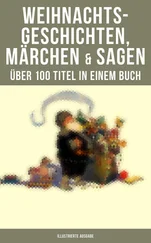41See Benjamin, “Reflections on Radio,” “Theater and Radio,” “Two Kinds of Popularity,” and “Listening Models,” in this volume. See also Brecht, “The Radio as Communication Apparatus,” in Bertolt Brecht on Radio and Film , trans. and ed. Marc Silberman (London: Methuen, 2000), 41–6.
42In approaching the radio works for children, it is important not to take for granted the significance of the “child” as a category of addressee for Benjamin. Indeed, in “Children’s Literature,” he declares that “If there is any field in the world where specialization must invariably fail, it is in the creation of works for children” (254). As Susan Buck-Morss has argued, Benjamin makes no “qualitative distinction” that would offset some topics as “appropriate” for children and others as fitting only for adults (“ ‘Verehrte Unsichtbare!’: Walter Benjamins Radiovörtrage,” in Walter Benjamin und die Kinderliteratur , ed. Doderer, 93–101).
43Here it is worth noting that the representation of such spaces is absolutely “new” only if we discount its appearance in other aesthetic forms, such as the literary representation of the bedroom or even of the mental interior through free-indirect verse.
44Benjamin, “The Work of Art,” 261 and 277 n. 27.
45Schiller-Lerg, Walter Benjamin und der Rundfunk. See also Schiller-Lerg, “Die Rundfunkarbeiten,” in Benjamin Handbuch , ed. Burkhardt Lindner (Stuttgart: Metzler, 2006), 406–20. The scholarship in English is almost nonexistent. The best-known study is Jeffrey Mehlman’s Walter Benjamin for Children: An Essay on His Radio Years (Chicago: University of Chicago Press, 1993). See also Wolfgang Hagen, “ ‘On the Minute’: Benjamin’s Silent Work for the German Radio,” 2006. Online at whagen.de/vortraege/2006.
SECTION I: Youth Hour: Radio Stories for Children
Benjamin broadcast the radio talks in this section from 1929 to 1932 on Radio Berlin and Southwest German Radio, Frankfurt. They were delivered as part of the stations’ youth programming: Berlin Radio’s Jugendstunde and Radio Frankfurt’s Stunde der Jugend, or Youth Hour.
The order of the broadcasts is roughly chronological, with further groupings into three overarching Benjaminian concerns: stories related to Berlin; stories about cheats and frauds; stories about catastrophes; and finally “True Dog Stories” and “A Crazy Mixed-Up Day,” which do not fit into the preceding categories.
CHAPTER 1. Berlin Dialect
Today I’d like to speak with you about the Berlin Schnauze. This so-called big snout is the first thing that comes to mind when talking about Berliners. 1The Berliner, as they say in Germany, well, he’s the clever one who does everything differently and better than the rest of us. Or so he would have you believe. That’s why people in Germany don’t like Berliners, or so they let on. Still, at the end of the day, it’s a good thing for people to have a capital they can grumble about now and again.
But really, is this true about the Berlin Schnauze ? It is and it isn’t. Every one of you surely knows lots of stories where Berliners open their big traps so wide that the Brandenburg Gate could fit inside. And later on I’ll tell you a few more that perhaps you’ve never heard. But if you look at it a little closer, much of what you think you know about the big snout isn’t actually true. It’s quite simple: for example, other peoples and other regions make much of their particular way of speaking; “dialect” is what we call the language spoken in an individual city or area. They go on and on about it; they’re proud of it; and they love their poets, like Reuter who wrote in Mecklenburg Low German, Hebel in Alemannic, and Gotthelf in Swiss German. 2And they’re right to do so. But Berliners, as far as “Berlining” is concerned, have always been very humble. In fact, if anything they’ve been ashamed of their language, at least around sophisticated people and with foreigners. Needless to say, when among themselves, they have a lot of fun with it. And of course they also make fun of Berlining, just as they do of everything else, and there are many pretty stories to show for it. For example: a man sits at the table with his wife and says: “Huh, beans again today? But I et ’em just yesterday.” Then his wife one-ups him and says: “It ain’t ‘I et,’ it’s ‘I ate.’ ” To which the man replies: “Maybe you call yourself that, but I sure as heck don’t.” 3Or the well-known story of a man walking with his son, who points to a sign and asks: “How do you prenounce that word, papa?” And the father corrects him: “ ‘Prenounce’ is prenounced ‘pronounce.’ ”
Berliners needed encouragement to own up to their language with outsiders. But this wasn’t always the case. One hundred years ago there were already writers creating Berlin characters that would become famous all across Germany. The best known include the Bootblack, the Market Woman, the Innkeeper, the Street Hawker and, above all, the famed Nante the Loafer. 4And if you’ve ever had your hands on old issues of the funny pages, you’ve probably come across the two famous Berliners, one short and fat, the other tall and skinny. They would talk politics, sometimes going by the names Kielmeier and Strobelweber, or Plümecke and Bohnhammel, or Meck and Scherbel, or finally just plain Müller and Schulze, and they came up with some of the greatest lines about Berlin. The newspaper had something new from them each week. But then came 1870 and the founding of the German Reich. Suddenly Berliners had grand ambitions and wanted to become refined. What was missing was a few great, widely respected men to give them back the courage of their own dialect. Strangely enough, two of them were painters, not writers, and we have a slew of lovely stories about them. The first, whom most of you won’t know, is the famous old Max Liebermann, who is still alive and still feared for his dreadful Schnauze. But a few years ago, another painter, one by the name of Bondy took him to task. 5The two of them were sitting across from one another in a café having a friendly chat, when all at once Liebermann said to Bondy: “You know, Bondy, you’d be a real nice guy and all if your hands weren’t so disgusting.” Bondy then looks at Professor Liebermann and says: “You got it, Professor, but you see, these hands here, I can just slide ’em in my pockets, like so. What do you do with your face?” And the other great Berliner, whom many of you know by name and who only recently died, is Heinrich Zille. 6If he heard or observed a particularly good story, he didn’t just run out and have it published. Instead he drew a splendid picture of it. These illustrated stories have just been collected after his death, so now you can ask for them as a gift. You’ll recognize many of them, but perhaps not this one: A father is sitting at the table with his three boys. They’re having noodle soup when one says: “Oskar, look how the noodle’s dangling from papa’s snout!” Then the oldest, Albert, says: “Gustav, you can’t call your papa’s mug a snout!” “Nah,” says Gustav, “the old buffoon don’t mind!” But now the father has had it and jumps up to fetch his cane. The three boys, Gustav, Albert, and Oskar, scurry under the bedstead. The father tries to get at them but can’t. Finally he says to the youngest: “Come out from under there, Oskar, you ain’t said nothin’. I ain’t gonna do nothin’ to you.” Oskar replies from under the bed: “And face a wretch like you?” Later on I’ll tell you a few more stories about fresh little brats. 7
But don’t think Berlinish is just a collection of jokes. It is very much a real and wonderful language. It even has a proper book of grammar, which was written by Hans Meyer, director of the old Gray Cloister School in Berlin. It’s called “The True Berliner in Words and Phrases.” 8As much as any other language, Berlinish can be spoken in a manner that is refined, witty, gentle, or clever, but of course, the speaker must know when and where to do so. Berlinish is a language that comes from work. It developed not from writers or scholars, but rather from the locker room and the card table, on the bus and at the pawn shop, at sporting arenas and in factories. Berlinish is a language of people who have no time, who often must communicate by using only the slightest hint, glance, or half-word. It’s not for people who meet socially from time to time. It’s only for those who see one another regularly, daily, under very precise and fixed conditions. Special ways of speaking always arise among such people, which you yourselves have a perfect example of in the classroom. There is a special language for school kids, just like there are special expressions used among employees, sportsmen, soldiers, thieves, and so on. And all these ways of speaking contribute something to Berlinish, because in Berlin all these people from all walks of life live piled together, and at a tremendous pace. Berlinish today is one of the most beautiful and most precise expressions of this frenzied pace of life.
Читать дальше












